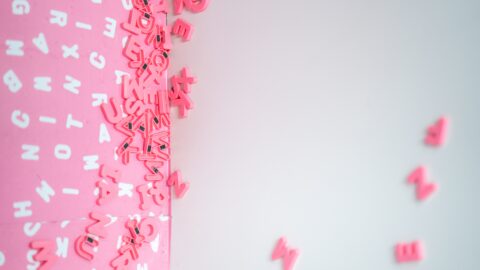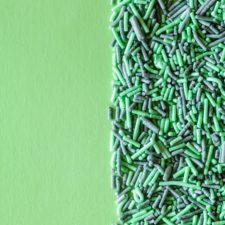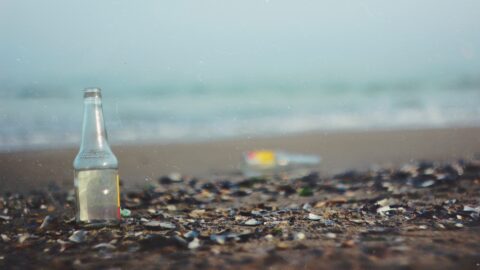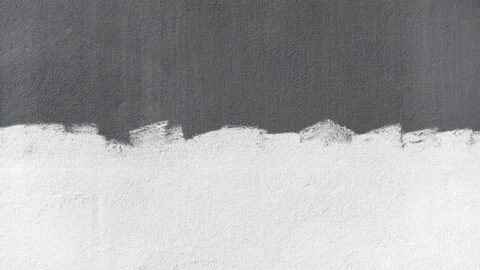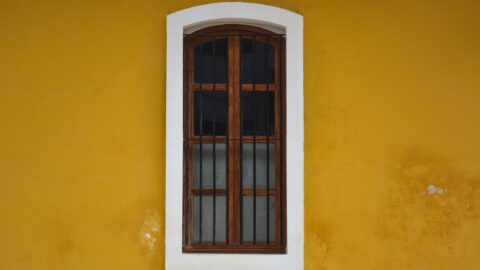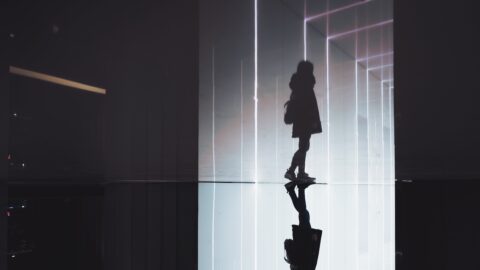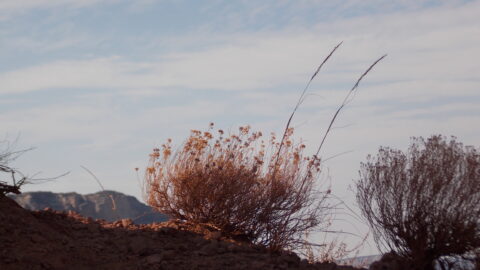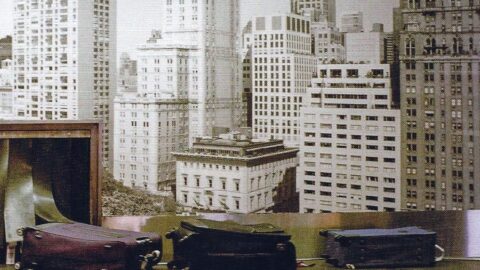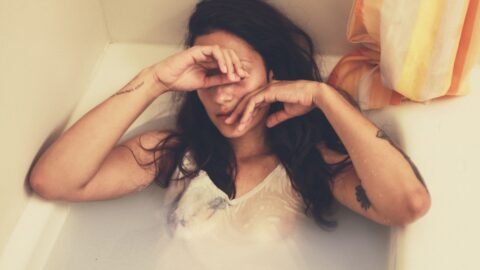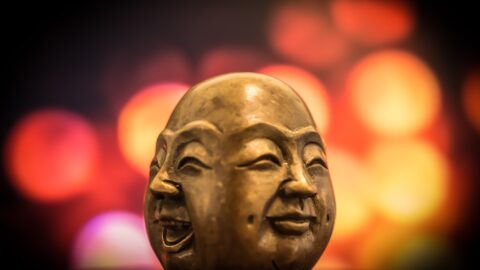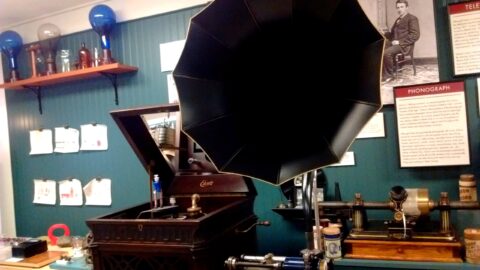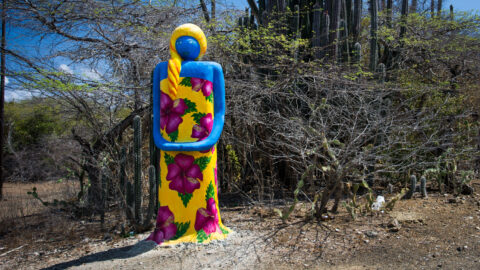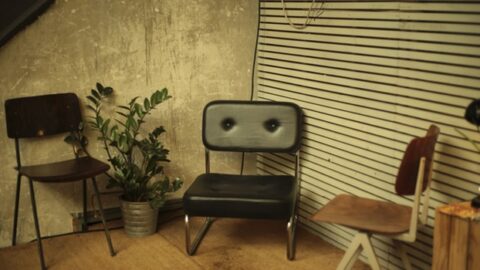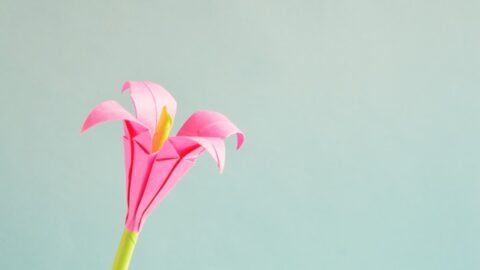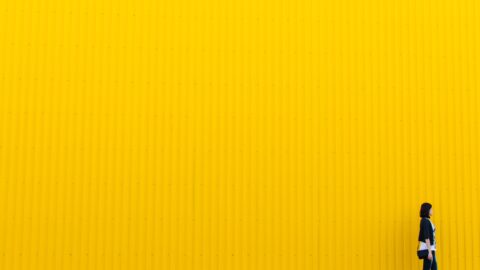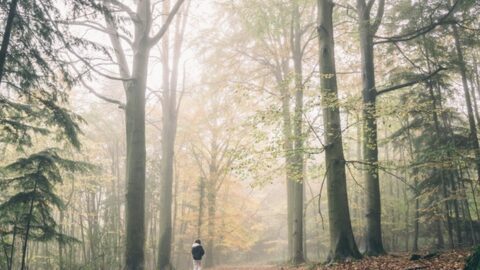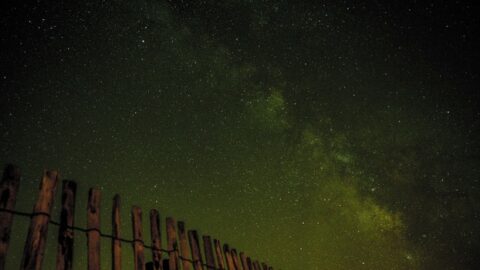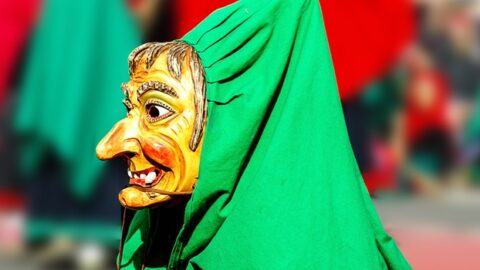“Diffusely Yours” by Kate Garklavs Suggests We Are All Connected on an Atomic Level
In the chapbook Diffusely Yours by Kate Garklavs (Bottlecap Press, 2018) each poem is a letter to a person or institution. These poem-letters are playful, absurd and full of private meaning.
The speaker diffuses bits of herself and her very visceral memories to a friend, lover or regular haunt, but it also clear she has absorbed parts of these people and places into herself as well.
Labor Day in a Beach Town and What It Means
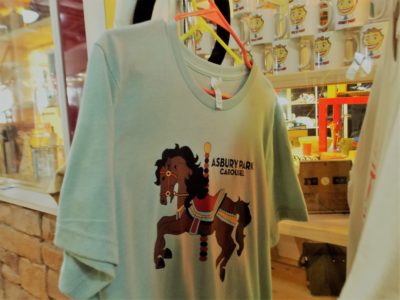
I live in Asbury Park, New Jersey. I don’t know what it means. I just got here.
I moved to a shore town to be closer to work during the final crescendo of summer. On an evening walk last month I overheard a child complain to his mother that it was still too hot, even after sundown. She joked, “We’ll have to start vacationing in Alaska.”
I cannot imagine being a person who uses “vacation” as a verb, let alone doing that verb.
Making the Tongue Dry: An Interview with Prose Prize Finalist Jen Soriano
Jen Soriano is a Filipinx-American writer whose work blurs the boundaries between nonfiction, poetry and speculative fiction. Her chapbook “Making the Tongue Dry” was a finalist for the Newfound Prose Prize. Her lyric essay “A Brief History of her Pain” was nominated for a Pushcart Prize and Best of the Net, and her essays have appeared in a number of journals including Waxwing, Pleiades and TAYO Literary Magazine. Jen is an MFA candidate in nonfiction and fiction at the Rainier Writing Workship, and lives in the Beacon Hill neighborhood of Seattle, WA with her two favorite boys in the world.
I’m learning to kick that controlling brain to the backseat and just let instinct allow words to tumble onto the page. – Jen Soriano
Eppinger: My first question is about genre. What do you consider the genre of “Making the Tongue Dry” to be? Elliptical prose? Creative Nonfiction? Something else? Also—does genre matter to you?
Soriano: Genre definitely matters to me, but not in the conventional sense. I care about the ways genre descriptions can work to help readers understand what they are reading. But I don’t care about genre as a rigid container that writers must fit our writing within.
So, to help readers understand my chapbook I guess I’d describe it as lyric essay and hybrid nonfiction. It’s important to me to name that it’s nonfiction because I’m deliberately trying to capture actuality on the page. Each essay in the chapbook grapples with an aspect of reality as I see it.
Small fires, dulled senses in the short fiction of Andrew Duncan Worthington
The main assertion of collection “A Very Small Forest Fire” by Andrew Duncan Worthington (Bottlecap Press, 2018) seems to be that the ultimate way to undermine capitalism is to be too bored to participate.
“Assertion” may be too strong a word. These 12 short-short stories employ what I suspect is purposefully dull and vague language, creating characters numbed by the constant stimulation of modern American society. Narrators (often unnamed) drift through recreation activities but don’t have any fun—they don’t feel much of anything. The sparse language evokes Kerouac, but with a more limited vocabulary.
Deep journeys into the psyche with Chaya Bhuvaneswar
Debut short story collection “White Dancing Elephants” by Chaya Bhuvaneswar (Dzanc Books, forthcoming October 2018 and winner of the Dzanc Short Story Collection Prize) plunges readers deep into the psyche of women—largely South Asian women.
Characters have the darkest corners of their minds exposed (through their own admissions or by omniscient narrators) and what comes forth is usually disagreeable. At the same time, well-trodden narratives about immigration are upended regularly.
The main character in “Jagatishwaran” is a woman who refuses to feel gratitude for or awe of a sister who has emigrated to the U.S. “But it’s my sister who’s the smart one, the doctor lady,” she rants to the reader.
“She thinks of us as dull-witted rice eaters waiting for her borrowed Anglo china plates and blue jeans, silk ties and pantyhose, perfume in fish shaped bottles, white linen napkins and forks so we won’t eat with our hands, expensive bolts of brilliant cloth—smelling slightly of glue, precious…”
You Don’t Understand Bruce Springsteen
I’ll be the first to admit: I grew up in New Jersey not understanding Bruce Springsteen. I heard his songs at home (first on vinyl, then on CD), in the car radio or at sporting events but I never quite understood the appeal. He was my first live concert experience, with my parents when I was 12. I attended dutifully, sang along, but didn’t feel real love in my heart while I chanted “BRUUUUUUCE!”
Only recently have I realized that Springsteen is often misunderstood—most gravely by his loyal fan base.
“The Twilight Zone” taught me everything I need to know about horror
The human reaction to the genre horror has long fascinated me. It’s inspired psychological and philosophical positions: Why do we watch things that scare us?
It’s hard for me to write about horror without drawing from deeply personal childhood experiences with classic TV and film. When I was 10 years old, the 1962 episode of “The Twilight Zone” called To Serve Man played on my family TV. My father cheered! I had to watch this! (He also recommended I read Bram Stoker’s “Dracula” in high school, as the scariest book he’d ever read. AGREED.)
Desert Photographs and Facts
2017 has not been a kind year for many in the United States, and beyond. It’s painful to look back at what we’ve been through and intimidating to stare down all the work that awaits us in 2018. But if the work is worthy, we’ll find a way to get it done as best we can.
Tomorrow is a holiday. If you can, take a break.
I hope that you care for yourself today. You need your strength. I hope that you get involved in activism and advocacy. We need your voice. I hope that you prioritize your writing or other creative output in 2018. We need your work.
I hope that you take a breath. This post will likely take you less than five minutes to read. Breathing is encouraged while you scroll through it.
The rest of this space will be filled with photographs from various hiking trails in Arizona alongside facts about the peoples and ecosystems of this region. Please enjoy this, if you can spare the time:
Teju Cole challenges us to locate our own “Blind Spot”
It is early December and daylight hours are so short that I worry I am forgetting what colors truly look like. My eyes are ever tired. I am weary. It happens every year around this time and I feel worn-out until spring arrives.
This week I found an antidote in photography-prose hybrid Blind Spot by Teju Cole (Random House, 2017).
A gorgeous collection of color photography and evocative text, Blind Spot shook me awake from dormancy. Each photo is titled with the location it was taken, featuring datelines like Venice, London, Lagos and Beirut. The accompanying text sometimes introduces the picture or refers to previous shots. Other times, the text muses on a philosophical idea, classical painting, or bit of music where the reader is left to connect the words to the image. (I was pleased to learn that Cole is a fan of both Bjork and Beck, among others.)
Yanagihara’s A Little Life and impulse control
I stared at the words in front of me, elegant while they concluded a chapter with devastating news. “No!” I said aloud, though I was in public. The coffee shop buzzed with life but I sat alone, with only a cooling latte to comfort me.
The sad news from the novel hit me all over again. My eyes stung and I let the tears fall. So what if I was surrounded by people—no one was really looking at me, right?
And then I felt a hand on my back. Two women—strangers—approached me and said they recognized the cover of the book and couldn’t help but peek at the chapter I was on. When they saw where I was in the story, they stayed close, knowing I was about to get my heart broken.
I could hardly speak. I tried to laugh but I was still crying: Why am I reading this book at all? What a silly way to spend a vacation!
The strangers comforted me: We read it because it was good. We kept going because it took over our minds and we didn’t want to do anything else. They both recounted stories of crying in restaurants or in plane seats because of this book. They told me I should take a walk, that getting air would help.
I’d never read a novel that created an extemporaneous support group before (though Push by Sapphire comes close). What the heck was happening to me?
Being a Writer Makes Me a Bad Buddhist
I have been bad at Buddhism since I was introduced to the teachings of the Buddha at 17 years old. I’ve been making the same mistakes, relearning and then forgetting the same lessons, while the decades pass. Which, I suppose, proves some of the most basic teachings of the Buddha after all.
Meet the Wizard: Thomas Edison’s Long Shadow in Menlo Park, NJ
I am standing inside a one-room museum on Christie Street, in what is now Edison, NJ (formerly Menlo Park), looking out at the first road in the world to be lit by electric lights. Thomas Edison lived here during a flurry of invention, production and patenting from 1876-1882. Today, the structures of the workshop and the Edison residential home, as well as those first incandescent bulb lamps, are gone.
This estate was only briefly inhabited by the iconic genius, but boasts the sites of some of his most famous discoveries. Come here to visit the spot where a bamboo filament made the first incandescent bulb shine and the desk where Edison tinkered with Alexander Graham Bell’s telephone enough for it to work better, more consistently.
This is a museum dedicated to those six early yet heady years in the career of Thomas Edison, with a heavy emphasis on his start as a child impresario.
August is About Bodies
We are now beyond the polite sundress season, way past hiding bra straps and donning breezy cardigans. In almost any weather, I prefer layered clothing. Just as socks protect me from blisters, keeping my thighs and arms under wrap prevents chafing and other discomforts. When you hike and garden and wander as much as I do, you get used to swaddling a body.
Until August. Ninety degrees and 100% humidity is my breaking point for modesty. I wake up every morning itching mosquito bites along my ankles and calves. I am acutely aware of what a damp, needy, sensitive body I have, all the livelong month. It’s too hot to feel shame or do anything but seek shelter and cling to relief (as calamine lotion or aloe gel or a tower fan or a glass of ice water).
August is about surrender. August is about bodies.
Home: A Photo Essay
Of course “home” means many things, and perhaps most importantly, it means people.
It is also made up of objects. Artifacts. Things inside a home are there to make life work, as well as to remind us who we are and where we’ve been. I like going home. After being away, the stuff there evokes memories. If I’m home too long I take these things for granted. I can’t see them anymore. This is a photo essay to help me see again.
A Case for Reading Outside Your Genre, or How I Learned To Stop Worrying and Love the Bomb
My new way of breaking the ice with strangers at parties is to ask: In what context and through what source did you first learn about the atomic bomb? (Makes me very popular at parties. Or it isolates everyone. I have about a 50/50 success rate.)
What this question is really asking is, what is your background, what beliefs and ideas make you up, and what lens do you use to view the world?
A Tale of Two Flâneuses: We want more history and less Lauren Elkin
Flâneuse: Women Walk the City in Paris, New York, Tokyo, Venice and London by Lauren Elkin (Farrar, Straus and Giroux 2016) is an uneven read that delights and also disappoints.
The problem is, there are two books trying to exist here, but neither has been given enough time or attention. History-Flâneuse tackles the concept of a flâneur: a wanderer, city-walker, bohemian, and man of leisure. (In French, this word was created in the masculine form, thus the concept has exclusively described men who live a dharma-bum lifestyle. Flâneuse is the female form and Elkin is trying to make Flâneuse happen.) Memoir-Flâneuse retells a few uninspiring stories of romantic relationships gone awry set in various cities of the world.
Six Rules for AWP
The annual conference of the Association of Writers & Writing Programs (AWP) is no joke. It’s the largest writers conference in the US, welcoming 12,000 or so attendees each year. If you have the good fortune to attend, you will find yourself in a sea of literary types–writers, publishers, editors, and more. Does that sound exciting, but also so overwhelming your stomach hurts and oh my God maybe you should cancel?
Here are some guidelines for making the most of this experience:
Anne Rice is Your Ex You Need To De-Friend on Facebook
The release of “Prince Lestat and the Realms of Atlantis” (on November 29, 2016, which downloaded onto your Kindle at midnight) reminds you of where you were for every step of this series. It’s the 12th book in the Vampire Chronicles, which makes you nostalgic and uncomfortable.
This series got weird, because its author did. Because most humans get weird, given enough time. And so did the ex who got you into these books in high school. The parallels are getting creepy. Don’t deny it: Anne Rice is the ex you need to de-friend on Facebook.
devorah major’s “and then we became” is a pilgrimage to the infinite
The reverence and lyricism of devorah major’s poetry collection “and then we became” (City Lights, November 2015) is a gift to all readers as we move into the darkest days of the year.
I picked up an early copy of this collection at City Lights Bookstore in San Francisco, so it was a special treat for me to be able to match my own experiences with these sights and sounds with the scenes from the poem “brown lady in white”
i have seen her
scurrying down mission street
gusting through tenderloin
pushing past crowds on market
Fakes and Masquerades in New Orleans, LA
I traveled to New Orleans, LA from Newark, NJ during a rainstorm and worried the whole flight. Not so much about the turbulence in the air, but about the conference I was traveling for. I was to present and receive awards regarding urban youth projects I work on in New Jersey, and would have to wear formal and business wear. Would I look awkward, or uncomfortable, or worse still, phony?


